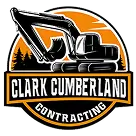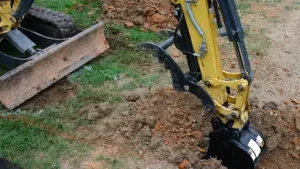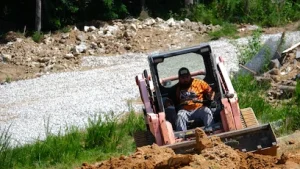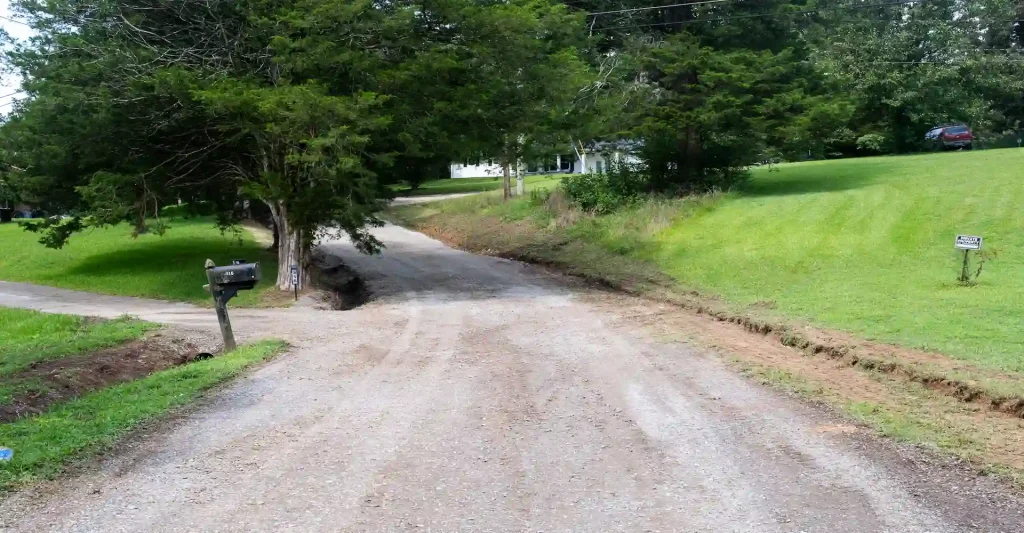
Proper driveway installation starts long before the concrete is poured or asphalt is laid, it begins with the right excavation. For homeowners in Jasper, understanding driveway excavation essentials ensures a durable, safe, and long-lasting driveway. From assessing soil type and slope to clearing the area and compacting the base, each step influences the stability and lifespan of your driveway.
In this guide, we’ll walk you through the essential preparation steps every homeowner should know. Whether you’re planning a small residential driveway or a larger garage access path, these excavation insights will help you avoid common mistakes, save on costs, and ensure your driveway stands the test of time in Jasper’s unique soil and weather conditions.
Why Proper Driveway Excavation Matters
Excavation is the foundation of a successful driveway. Without proper preparation, even the best paving materials can fail over time. Incorrect excavation can lead to cracks, uneven surfaces, water pooling, and erosion, all of which compromise your driveway’s durability.
For homeowners in Jasper, soil conditions like clay, sandy patches, or rocky areas make proper excavation even more critical. By preparing your property correctly, you ensure a stable subgrade, proper drainage, and a level surface for your driveway. This reduces maintenance needs, prevents long-term damage, and provides a smooth, safe surface for vehicles and pedestrians.
Assessing Your Property
Before any digging begins, it’s essential to evaluate your property. This step ensures that your driveway will be stable, properly drained, and aligned with your landscape. For homeowners in Jasper, understanding local soil and terrain is particularly important.
Soil Type
Jasper properties can feature clay, sandy, or rocky soils. Clay holds water and may require additional grading or drainage solutions, while sandy soils drain quickly but may need compaction. Rocky soils can slow excavation and require specialized equipment. Identifying your soil type helps plan excavation efficiently.
Drainage Patterns
Water flow affects your driveway’s longevity. Assess where rainwater naturally runs across your property. Improper drainage can lead to pooling and erosion, damaging both the driveway and surrounding landscaping. Plan slopes or channels to redirect water away from the surface.
Property Slope
The natural slope of your property influences grading requirements. Steeper areas may need more excavation and retaining measures, while flatter areas still require subtle grading to ensure proper drainage and prevent water buildup.
Steps to Prepare for Driveway Excavation
Proper preparation ensures a stable, durable driveway. Each step addresses key challenges related to soil, drainage, and grading, setting the foundation for long-term success.
Clear the Area
Remove trees, shrubs, rocks, and debris from your driveway path. Clearing the area prevents obstacles during excavation and ensures machinery can operate safely. For Jasper homeowners, local vegetation and roots may require extra effort to avoid future damage to the driveway subgrade.
Mark the Layout
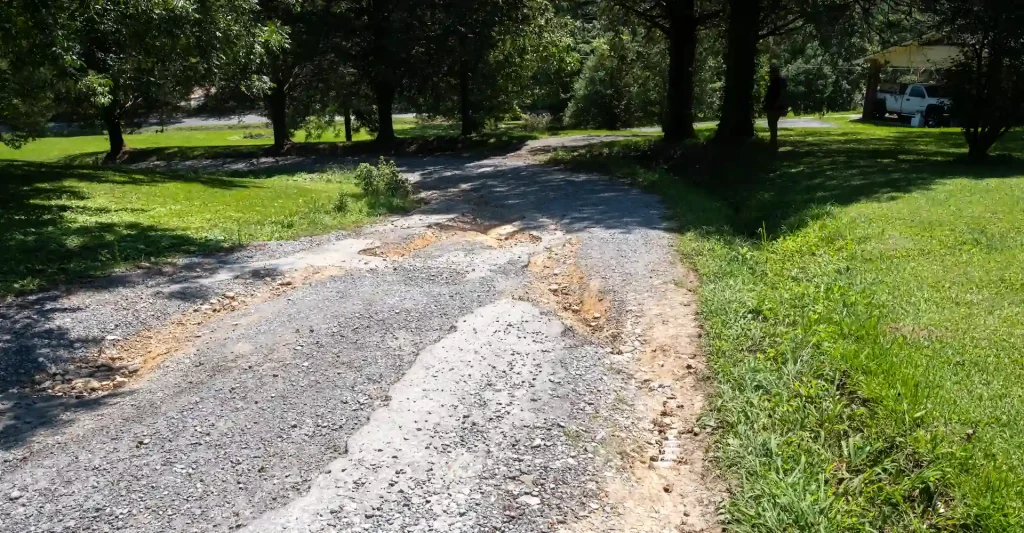
Use stakes and string to outline your driveway’s boundaries. Clearly marking the layout ensures accurate excavation dimensions and helps avoid encroaching on lawns, gardens, or utility lines. Proper layout planning reduces mistakes and keeps your project on schedule.
Excavate to Proper Depth
Excavate the driveway area to the recommended depth, typically 8–12 inches for residential driveways. Depth depends on soil type and the intended driveway material. Proper excavation prevents settling, cracking, and uneven surfaces over time.
Install Proper Base Material
Spread gravel, crushed stone, or another base material evenly across the excavated area. The base provides stability, improves drainage, and supports the driveway surface. The right base material depends on soil type, with heavier clay requiring thicker or more compacted layers.
Compact the Base
Use a mechanical compactor to firmly compress the base material. Compaction reduces air pockets, prevents future settling, and ensures the driveway can withstand vehicle weight. Proper compaction is critical, especially in Jasper’s clay or sandy soils, to create a stable foundation for the surface material.
DIY vs. Hiring a Professional in Jasper
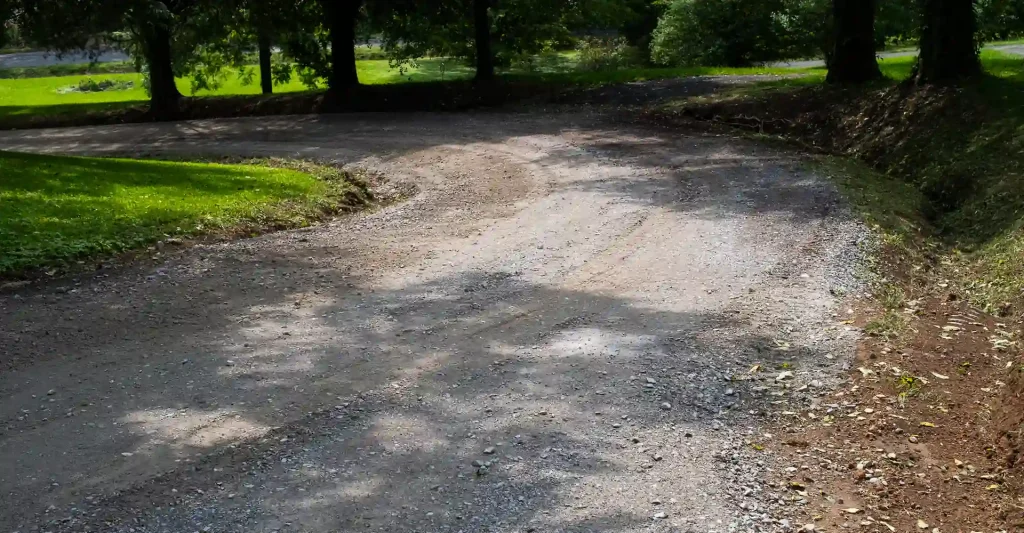
While some homeowners may consider excavating a driveway themselves, local conditions in Jasper often make professional expertise a smart choice. DIY projects can save money initially but carry risks—improper grading, poor drainage, and unstable bases can lead to costly repairs later.
Hiring a professional ensures:
- Accurate soil assessment and grading tailored to your property.
- Proper use of equipment for excavation, compaction, and base installation.
- Compliance with local regulations or permit requirements.
For Jasper homeowners, professionals familiar with regional soil conditions can anticipate challenges, prevent mistakes, and complete projects more efficiently. Investing in expertise upfront often saves both time and money while guaranteeing a long-lasting driveway.
Common Mistakes Homeowners Make
Even small errors during driveway excavation can lead to long-term problems. By understanding these common pitfalls, Jasper homeowners can avoid costly repairs and delays.
- Ignoring Drainage: Poor grading or lack of drainage channels can cause water pooling, erosion, and damage to your driveway and nearby landscaping.
- Skipping Compaction: Failing to compact the base material properly can lead to settling, cracks, and an uneven surface over time.
- Incorrect Depth or Base Material: Excavating too shallow or using inappropriate base material reduces driveway stability and lifespan.
- Overlooking Soil Type: Not accounting for clay, sand, or rocky soil can result in unexpected challenges during excavation and construction.
By planning carefully and addressing these areas, homeowners ensure their driveways remain durable, safe, and visually appealing.
Frequently Asked Questions
1. How deep should a driveway excavation be?
For most residential driveways, excavation typically ranges from 8 to 12 inches, depending on soil type and driveway material. Proper depth ensures stability, prevents settling, and supports the weight of vehicles over time.
2. What base material is best for Jasper soil?
Gravel or crushed stone is generally ideal. Clay soils may require a thicker base layer, while sandy soils need proper compaction to prevent shifting. Choosing the right base ensures proper drainage and a long-lasting driveway.
3. Can I dig the driveway myself?
DIY excavation is possible for small, simple driveways on flat, stable ground. However, Jasper’s clay, rocky, or uneven soils often require professional equipment and expertise to ensure proper grading and drainage.
4. How long does driveway excavation take?
A typical residential driveway excavation in Jasper can take 1–3 days, depending on size, soil type, and equipment used. Complex or rocky properties may take longer, especially if heavy machinery is required.
5. How does soil type affect the cost of driveway excavation?
Challenging soils, such as dense clay or rocky areas, increase labor, equipment needs, and overall project time, raising costs. Sandy or loamy soils are easier to excavate and typically reduce project expenses.
Get Jasper Excavation Experts for Your Driveway
Excavating a driveway is more than digging a hole—it’s about creating a stable, properly graded foundation that lasts for years. For homeowners in Jasper, working with experienced local excavation professionals ensures your project is done safely, efficiently, and correctly the first time.
Our team understands Jasper’s unique soil conditions, drainage challenges, and grading requirements. From planning and layout to excavation and base compaction, we handle every step so your driveway is smooth, durable, and ready for paving.
Don’t risk costly mistakes or delays and contact our Jasper excavation experts today for a consultation and start your driveway project with confidence.
